Kellyn Roth's Blog: Kellyn Roth, Author, page 66
April 2, 2016
Introducing Ivy Introspective
Today I’ll be introducing a new book … Ivy Introspective!
.
.
.
Yes, it’s just a remodeled Ivy Inquisitive. Since when are you so insightful?
March 30, 2016
Prologues: The Dos and Don’ts
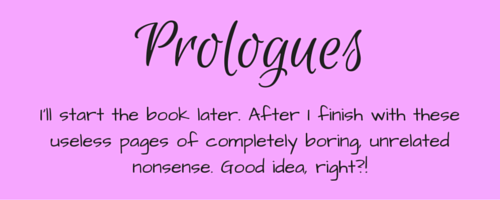
Prologues are, perhaps, the most greatly debated technique out there.
They are greatly overused. Some stories – most stories – are better off without their prologues.
They are out of style. Most publishers and readers dislike them. I’ve heard that some even skip them. Though I think that’s kind of stupid. Why bother reading the book if you’re just going to skip a whole portion of it?
But, in my opinion, they aren’t always to be banned.
What is a prologue? How do you know if your book could use one? How do you write an interesting, informative prologue? Read on![image error]

A prologue is a few pages (or even just paragraphs) of a novel that begins before chapter one. I have one in The Dressmaker’s Secret.
The Purpose of Prologues:
To give a short bit of backstory for one of the main characters.
To hook the reader. Though make sure that your first chapter – and every chapter after that – is steadily pulling the reader in![image error]
To give an introduction to the novel’s world, time period, genre, mood, or main characters. In The Dressmaker’s Secret, my prologue – hopefully – introduces the time period, genre, mood, and two of the primary characters.

The Dos and Don’ts of Prologues
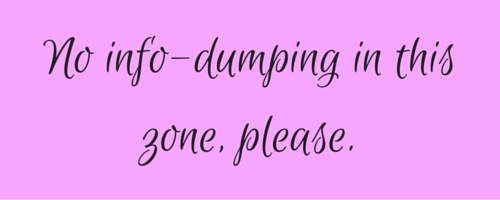
Never put too much info in a prologue. A prologue is not an information dump any more than a first chapter is. Spread anything your reader needs to know throughout the book. The time for a beginning-of-a-Star-Wars-movie summary is never.

Never write a prologue that has nothing to do with the story. Though a prologue shouldn’t be necessary to the story – you would be able to remove it without serious damage to the plot – it should have something to do with the plot. Never stick a random, exciting scene onto the beginning of your book.
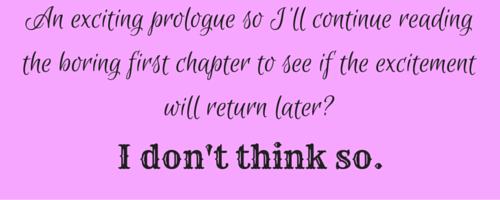
Never write a prologue just to pull a reader in. Hook the reader in chapter one, and keep him/her hooked from then on. If it’s true that many people just skip the prologue, then obviously the purpose of the prologue will be totally lost.

Never write a long prologue. Prologues are meant to be short. Shorter than the average chapter, at the very least.
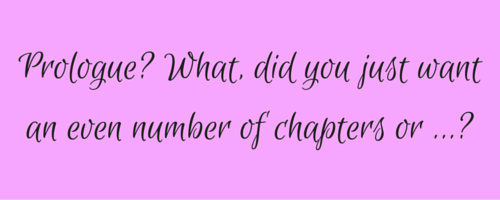
Never write a prologue that could simply be chapter one. Just title it chapter one if that’s what it is. No need to be fancy. Just start the story, for heaven’s sake!
And after all that negativity, let’s be positive![image error]
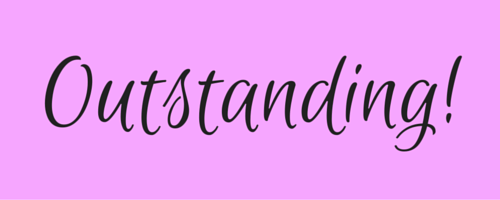
Write prologues that stand apart from the novel in some way. Whether it be in time period or POV, make your prologue outstanding![image error]

Write prologues that can be taken away from the book without subtracting from it, yet add to the book. Think of a prologue as an adjective. Your novel is the noun the adjective is describing. You don’t need the prologue to give your book more meaning, but it makes it more interesting and adds depth.

Write prologues with that foreshadow. Intriguing, subtle foreshadowing is one of the best things to do with a prologue.

Write prologues from the point of view of a minor character, of the antagonist.
Well, I think that’s about it! I’d love to see your questions and/or comments![image error]
~Kellyn Roth


March 28, 2016
Edenbrooke by Julianne Donaldson
A Proper Romance
 Marianne Daventry will do anything to escape the boredom of Bath and the amorous attentions of an unwanted suitor. So when an invitation arrives from her twin sister, Cecily, to join her at a sprawling country estate, she jumps at the chance.
Marianne Daventry will do anything to escape the boredom of Bath and the amorous attentions of an unwanted suitor. So when an invitation arrives from her twin sister, Cecily, to join her at a sprawling country estate, she jumps at the chance.
Thinking she’ll be able to relax and enjoy her beloved English countryside while her sister snags the handsome heir of Edenbrooke, Marianne finds that even the best laid plans can go awry.
From a terrifying run-in with a highwayman to a seemingly harmless flirtation, Marianne finds herself embroiled in an unexpected adventure filled with enough romance and intrigue to keep her mind racing.
Will Marianne be able to rein in her traitorous heart, or will a mysterious stranger sweep her off her feet?
Fate had something other than a relaxing summer in mind when it sent Marianne to Edenbrooke.
Edenbrooke by Julianne Donaldson is a sweet, engaging romance. I got it from the library at about 4 one afternoon, began reading it about an hour after that, and finished it at 10 the next morning. I couldn’t put it down.
I loved it … but it had quite a few faults … quite a few loose-ends never tied up. As always, good books are gone to waste because they seemed to be published before their time, when the writer has yet to give it the completeness it deserves.
Plot
There were horses! How could I not love it?
Predictable.
And we got it from the point of view of a completely clueless heroine. If I wasn’t so amused (or rather, bemused) by her, her lack of understanding would have ruined the book for me.
Why can’t they all be Abigail Foster from The Secret of Pembrooke Park? *sighs*
But … well … there’s nothing wrong with a predictable book … and I loved this plot. :)
And then I didn’t predict the last plot twist, as always. So Edenbrooke redeemed itself. ;)
Characters
Marianne:
Ok, Julianne Donaldson … you didn’t need her to be named Marianne. We knew that she was a Marianne from page one on! ;)
A silly, innocent, naïve, ridiculous, a little bit crazy young girl who is totally clueless about everything around her.
A few things:
What is the deal with Marianne’s twirling? Why does she want to twirl so badly? I suppose it’s just a cute way of expressing happiness … but still … twirling? Ok … *is puzzled*
And WHY can’t Marianne sing? Simply because she’s a bad singer? But it was never made clear if she was or wasn’t. Or is she just shy? There is an allusion to an embarrassing incident involving her singing that happened a couple years ago … that was never explained.
For a girl who’s trying to conceal her emotions, Marianne is a mess! I never saw one instance where she was actually controlling her gushy feelings!
And Marianne can’t seem to see how awesome Philip is for the longest time, and even when she does realize his perfection, she keeps doubting his friendship. And she’s clueless about his love for her! Everyone can see it BUT Marianne. Even her fellow book characters can see it! Sure, she was sheltered, but does that excuse this level of cluelessness? So blind!
So silly and clueless!
But I liked her anyway. I like silly people in books. They amuse me. And we all need someone to scream at now and then … you know, affectionately.
Affectionate screaming???
Philip:
*swoons to the floor* Ah, Philip! Thou hast achieved perfection!
Seriously. This is the perfect man!
Sweet, romantic, but witty and intelligent and, as if that weren’t enough, he loves horses. *dies* I would marry Philip in a flash!
Unlike Marianne, who just can’t seem to see his awesomeness! :”(
Anyway, he was one of the best characters ever!
~ ~ ~ ~ ~
The other characters were either rakes, flirts, queer, or manipulative. Except Rachel, who got way too little screen (er, page) time. And maybe Lady Caroline. Lady Caroline was nice.
Setting
I really want to go to Edenbrooke. It sounds like a wonderful place! :D
I’ve been reading a lot of regency romance recently, so I was kind of already in that world before I started reading … but there weren’t too many historical details, and there were a couple faults.
Content
Clean. I can’t remember any sexual comment or swearing. There was a little violence (a swordfight, I believe), but nothing gory or even bloody. I think it’s a safe read for teens. :)
Rating
3/5 stars
I enjoyed it. It was a lovely book. But there were too many problems for it to make four stars, let alone five. :)
~Kellyn Roth

Julianne Donaldson grew up as the daughter of a U.S. Air Force fighter pilot. She learned how to ski in the Italian Alps, visited East Berlin before the wall came down, and spent three years living next to a 500-year-old castle. After earning a degree in English, she turned her attention to writing about distant times and places. She lives in Utah with her husband and five children.
p.s. I just realized that this is my 100th post on Reveries! Yay!!! :D


March 27, 2016
The Dressmaker’s Secret Free Day!
Hello,
The Dressmaker’s Secret is free today on Amazon Kindle! You can buy it here!
I suggest that you get it again even if you got it last time I had a free day, as this is the edited version. I think it’s a lot better than it formerly was. :D
If you do buy a copy (and read it) I’d love if you wrote a short review!
Happy Easter and may God bless you all! :)
~Kellyn Roth


March 25, 2016
Poetry Teatime: The 4th Week of March

Hi Guys and Gals! :)
Today I’ll be introducing my favorite Easter poem. :)
On Easter Day
Celia Thaxter
Easter lilies! Can you hear
What they whisper, low and clear?
In dewy fragrance they unfold
Their splendor sweet, their snow and gold.
Every beauty-breathing bell
News of heaven has to tell.
Listen to their mystic voice,
Hear, oh mortal, and rejoice!
Hark, their soft and heavenly chime!
Christ is risen for all time!

Isn’t that a lovely poem? So beautiful! :) Since it’s late (and so am I!), I’m going to post it now. I know this isn’t much of a post, but I think the poem really speaks for itself … and, besides, I admit that my worst fault is laziness. :P
~Kellyn Roth


March 23, 2016
Are you meant to be an author?

So, you want to be a writer, eh? Well, that’s a dream that thousands upon thousands of people have. However, I’d say only about half of those could really be authors, and only about half of those have what it takes to be serious authors.
How do you figure out if novel-writing is going to be your career? (and no, this will not be a very serious post …)
Things That Authors Should Have:
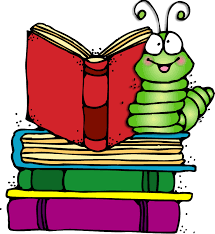
A love of books. I mean, come on! You can’t be an author unless you love books! After all, you have to love what you’re creating to create it … or why would you make it in the first place?

A love for your books. Though other people’s books are a great place to start with, you obviously have to love your own books, too.

A love of words. Words are your tools. You have to love them to make a book.

A lot of persistence. You’re going to have bad days, writer’s-block days, procrastinating days, do-nothing days. But you have to write it out and then keep going! ;)
What are signs that you might be an author?
Authoritis generally strikes in the mind first with an uncontrollable desire to create actual people in your head and then write about these people. If this happens to you, don’t be alarmed! No, there is, as of yet, no cure, but I’m sure you’ll learn to live with it in time.

Eli Roth and I actually have a lot in common. Only the problem is, Alice refuses to stop talking until I finish the entire series. And then write series about her children and grandchildren and … *screams*

Alice: WHY ARE YOU PUTTING ME THROUGH THIS???? I HATE YOU!!!
Alice, what did we talk about?
Alice: I don’t care! Sometimes I don’t want to be a lady!
A lady doesn’t raise her voice. Now run along. My post is late, and I’m trying to work.
Alice: But you’re supposed to be getting on Createspace and uploading our file. People need to know my story!
Alice! *firm voice*
Alice: Very well, but I can’t believe these stupid readers who you don’t even know are more important to you than me. *stalks off*
Whew. That could have been much worse. Alice can get a little … intense at times. You’re lucky to be reading this! She might have convinced me to abandon this post entirely. What she really needs is a firm hand, though. And to learn that she’s not invincible. Seems to be a family thing, this disregard for human frailty. *frowns* *has deep thoughts*
*clears throat* Getting on with things, here are a few things that may signal the beginning of an authoritis attack.
Characters in your head. We’ve already talked about this.
and/or
Plots in your head. Though characters tend to get a stronger hold on me, for some people, plots are the strongest symptom.
Or it’s
Both characters and plots. But in most cases, the dominant symptom is one of the other.
In rare cases:
Worlds in your head. This most commonly comes in lovers of fantasy, science fiction, or other genres where worlds have to be strenuously built.
Most of these cases develop from
An obsession with an idea. Also known as a “plot bunnies,” if you develop them, they will most likely become one of the serious forms.
In advanced stages, the victim of authoritis will look something like this:

However, if dealt with properly, authoritis can be a very wonderful thing. To begin with, you must force authoritis not to get bored and leave behind the original characters and plot before you’ve so much as finished the first chapter.
One of authoritis’s greatest problems is the need to start books and the dislike of finishing them. Authoritis may cause the victim to start an average of 203 books a day and finish none of them during his/her lifetime.
That’s where persistence comes in.
Remember persistence? From way up there?

My thoughts exactly. So, no matter what, pick the plot bunny you like best, and DON’T LET AUTHORITIS STOP YOU FROM FINISHING IT!!!
Even if it’s the worst idea ever, even if it’s basically fanfiction of one of your favorite books, even if the plot is lame and the characters dull, even if you want to throw it in the trash … finish it! And then pick another to write. And another. And another.
Alice: Who are you to talk? You’ve finished one book in your lifetime.
You know that’s not true.
Alice: Fine. How many books have you actually finished?
Besides The Dressmaker’s Secret, I’ve finished two novels and half a dozen short stories.
Alice: Really? Do you realize that Charles Dickens wrote about 19 books and countless short stories? You have a while to go.
Charles Dickens was getting paid.
Alice: You win.

Note: You can’t take the words in this post as law. As you may have been able to tell, a lot of this is nonsense, though I believe that beneath all the arbitrary moonshine, there’s a grain of truth. ;)
And … I simply haven’t the time or space to give credit to everyone who I stole graphics from. Thanks to everyone who subconsciously donated to this blog post. :)
~Kellyn Roth
p.s. Do you like my Easter theme? I love it! And I love the color pink. THIS BLOG SHALL NEVER BE UNPINK AGAIN!!! :P


March 21, 2016
The Girl in the Gatehouse by Julie Klassen

Miss Mariah Aubrey, banished after a scandal, hides herself away in a long-abandoned gatehouse on the far edge of a distant relative’s estate. There, she supports herself and her loyal servant the only way she knows how–by writing novels in secret.
Captain Matthew Bryant, returning to England successful and wealthy after the Napoleonic wars, leases an impressive estate from a cash-poor nobleman, determined to show the society beauty who once rejected him what a colossal mistake she made. When he discovers an old gatehouse on the property, he is immediately intrigued by its striking young inhabitant and sets out to uncover her identity, and her past. But the more he learns about her, the more he realizes he must distance himself. Falling in love with an outcast would ruin his well-laid plans.
The old gatehouse holds secrets of its own. Can Mariah and Captain Bryant uncover them before the cunning heir to the estate buries them forever?
~ Plot ~
Wow … that was a coincidence!
That basically sums up the whole plot of The Girl in the Gatehouse. It was perhaps a little too neatly knitted, which was annoying and predictable. I didn’t have to finish the book to know how it was going to turn out … but I did anyway.
Also, a lot of the circumstances in the book seemed to come from Jane Austen books, especially Mansfield Park and Persuasion. I almost wondered if she was impeaching copyright laws. ;)
On the other hand, I really enjoyed learning about writers/writing/publishing books during the Regency era. Very interesting. However, not interesting enough to save the story.
Definitely not one of Julie Klassen’s best plots.
~ Writing ~
Definitely not as good as some of her other novels. Immature and awkward. It feels like Julie Klassen didn’t take as much time with this book as she has with others in the past.
~ Characters ~
None of the characters seemed as defined as I would have liked. Is Mariah timid or free-spirited? Is Captain Wentworth Bryant temperamental or kind?
Everyone in this book seemed to be a mess of over-reactions and same-ness. I couldn’t really like anyone.
It’s annoying how the main characters are always dull while if there is an interesting character, he/she is a minor character of the villain.
Why? WHY!?
The villain was the only well-developed character, and he was hateful … and not even in a good way!
~ Content ~
The main character is a “fallen” woman who was seduced by the man she “loved.” That happened a while ago, but we get the benefit of having Mariah write a story about it so we get a good idea what happened. Not at all detailed, though. Also, some suggestive-ish stuff and a couple kisses.
I don’t believe there was any swearing.
Fist fights and a sword fight, if my memory serves.
I’d give it “PG,” leaning towards “PG-13,” but not too heavily.
~ Overall rating ~
**
I’ve been going between two and three stars … and finally settled on two. This book was a big disappointment, especially since Julie Klassen has said it was her “favorite” of all the books she’s written.
~ About the Author ~
 Julie Klassen loves all things Jane—Jane Eyre and Jane Austen. A graduate of the University of Illinois, Julie worked in publishing for sixteen years and now writes full time. Three of her books, The Silent Governess, The Girl in the Gatehouse, and The Maid of Fairbourne Hall, have won the Christy Award for Historical Romance. She has also won the Midwest Book Award, the Minnesota Book Award, and Christian Retailing’s BEST Award, and been a finalist in the Romance Writers of America’s RITA Awards and ACFW’s Carol Awards. Julie and her husband have two sons and live in a suburb of St. Paul, Minnesota.
Julie Klassen loves all things Jane—Jane Eyre and Jane Austen. A graduate of the University of Illinois, Julie worked in publishing for sixteen years and now writes full time. Three of her books, The Silent Governess, The Girl in the Gatehouse, and The Maid of Fairbourne Hall, have won the Christy Award for Historical Romance. She has also won the Midwest Book Award, the Minnesota Book Award, and Christian Retailing’s BEST Award, and been a finalist in the Romance Writers of America’s RITA Awards and ACFW’s Carol Awards. Julie and her husband have two sons and live in a suburb of St. Paul, Minnesota.
Her website // Her Goodreads // Her co-owned blog
~Kellyn Roth


March 19, 2016
Describe the Days of the Week as People
Lily tagged me, and so here I am, describing the days of the week as people! :D

That is the creepiest thing I’ve ever seen. I’m not even going to talk about the evil, one-eyed old bum, but the girl with the tattoos … good grief!
The Rules:
Tag the person who tagged you.
Describe each day of the week as if it was a person.
Tag as many people as you like.
Have fun!
Monday
Monday is a always-rushed, work-obsessed single mom. She wakes up early each morning, pins her honey-blonde hair into a tight blonde, puts on a sensible amount of makeup, gets her kids breakfast, drives them to school, and hurries to her job, working as an accountant for a huge business cooperation.
Tuesday
Tuesday is a happy, easy-going, though tired, elderly man. He spends most of his time fishing. He lives in a cabin up in the woods. He’s been retired for a number of years, and his children and grandchild visit him often, though he prefers to be by himself with his dog, Brett.
Wednesday
Wednesday is a little girl with strawberry-blonde braids. She has freckles and light blue eyes. She’s a bit of a tomboy who loves playing with the boys. She especially loves baseball. Wednesday has three big brothers who push her around a bit, but she can usually keep up with them … and even best them, sometimes!
Thursday
Thursday is a misunderstood musician. He has written many songs though no one seems to like them. But he dreams of having all his songs published someday. In the meanwhile, he works at McDonalds and lives in a crummy little apartment.
Friday
Friday is a young upper-class woman from the Victorian era. Though proper on the outside, she has a secret desire to become a writer. Afraid of what Society will think of her, she refrains from telling anyone about her talent.
Saturday
Saturday is a rebellious teen. She sleeps in until eleven or twelve whenever she has the chance. She doesn’t really like – or talk to – anyone. She is constantly wearing headphones which are turned WAAAAAY up, and you won’t see her without her phone! Where she goes, it goes. She spends the greater majority of her life sending pictures of cats to her friends.
Sunday
Sunday is an old woman from long ago. She is very strict and cold-looking on the outside, but she has a soft, gentle heart. She spends most of her time attending charity events.
I tag David, Lana, Morgan, and KA. Anyone else who wants to do this can consider themselves tagged! :P
~Kellyn Roth


March 18, 2016
Poetry Teatime: The Third Week of March

Welcome to (somewhat late) Poetry Teatime, March the 18th, 2016! I’m so glad to see you all here!
Today I’ll be talking about Emily Dickinson’s Dear March – come in!

Dear March — Come in —
How glad I am —
I looked for you before —
Put down your Hat —
You must have walked —
How out of Breath you are —
Dear March, how are you?
And the rest?
Did you leave nature well?
Oh, March, Come right up the stairs with me —
I have so much to tell —
I got your Letter, and the Birds —
The Maples never knew that you were coming — till I called
I declare — how Red their Faces grew —
But March, forgive me — and
All those Hills you left for me to Hue —
There was no Purple suitable —
You took it all with you —
Who knocks? That April.
Lock the Door —
I will not be pursued —
He stayed away a Year to call
When I am occupied —
But trifles look so trivial
As soon as you have come
That Blame is just as dear as Praise
And Praise as mere as Blame —

Emily Dickinson was born in 1830 in Amherst, Massachusetts to a rather prominent, respected family. During her lifetime, she barely left her parents’ house. She wrote literally thousands of poems, most of which have deep, hidden meaning … and are seemingly nonsense until you read it three or fifty times and get the meaning!
Though considered a bit strange, even insane, during her lifetime, reclusive Emily Dickinson has since become one of America’s most beloved poets.
Some of Miss Dickinson’s poems, like the above, were light-hearted, sweet, adorable, beautiful. Others were depressing, sometimes even morbid … but most often a bright light of hope – hope for future happiness – shone through her pieces.
Dear March – come in is full of joy in the coming spring. Emily Dickinson welcomes March – the month – as if she were a person, telling her to come in, take off her hat, and stay a while.
Thanks for reading this post; don’t forget to comment! I love hearing from you all! :D
~Kellyn Roth


March 16, 2016
Tips for Writing a Book Series
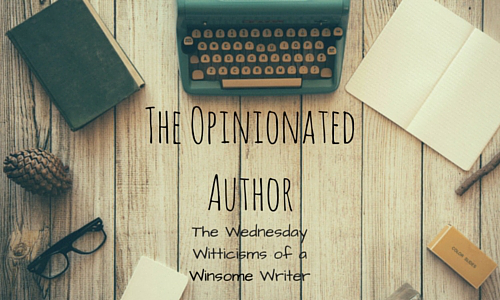
Hello, Everyone!
Sorry about the half-a-post yesterday. ;) I deleted it after I accidently published it … but I’m pretty sure it went out to everyone who receives email notifications of new posts. Sorry about that. I’m not perfect. :P

Today I’ll be giving you a few tips for writing a book series. :)
Know when to stop. Eventually, it’s time to write the last book in a series and move on to something new. You can’t stick with your beloved characters forever, and if the series keeps going on for a hundred books, your reader is going to loose interest at some point. Stop writing when you don’t have another book to write.
Don’t be inconsistent. A character can’t have red hair in the first book and blonde hair in the second book … unless he or she dyed it … and why would anyone dye red hair? It’s perfect as it is! ;) So get your facts straight. But more importantly, be true to your character’s personality, way of speaking, way of acting. Nothing’s worse than a character who changes from the end of the last book to the start of the next without reason … especially if he/she happens to be your reader’s favorite character!
Remember that each volume is also an individual story. It must have a beginning, middle, and end … introduction, rising action, climax, falling action, and resolution.
Don’t make each book exactly like the last. Star Wars fans are already speculating about the eighth Star Wars movie, and I’ve heard a few people say that they think the 8, 9, and 10 are going to mirror the original three … same old plot. I don’t know what you think, but the only thing that comes my mind is bad idea. Your books are part of a series; they should be similar; they should not be identical. Don’t be predictable!
Don’t recap too much at the start of every book. If your reader insists upon reading your books out of order, don’t make it too easy on him. ;) Seriously, though, extensive recapping is unnecessary and boring to a reader who’s reader the first couple books, and downright dull to a reader who hasn’t. Avoid it. If you must recap, spread it out a little; don’t begin the book with page after page summarizing the first books in the series.
Although writing a series of books instead of a stand-alone is much more difficult, if you have the material to do so, it’s a good idea. If the reader likes the first book, he or she will likely read the next one … and the next one … and the next one. :D
Thanks for reading and have a nice mid-week. ;)
~Kellyn Roth


Kellyn Roth, Author
Find the main blog at http://kellynrothauthor.com/blog ...more
- Kellyn Roth's profile
- 1125 followers



